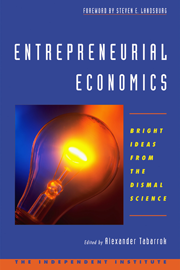Recent reports announced that infant formula would soon be enhanced with two fatty acids that can improve the brain and eyes of young children. Although breast milk is still best, the addition of the two fatty acids, DHA and AA, will make formula more like breast milk. Bottle-fed babies and their parents should be glad for this seemingly-recent breakthrough in infant nutrition.
Yet they should also be disturbed that the Food and Drug Administration (FDA) is one of the last regulatory agencies in the developed world to approve these enhancements.
The science behind formula enhancement is not new. DHA is a major component of brain and eye tissue, and studies have shown that infant formula enhanced with DHA and AA improves infant IQ and vision. As early as 1992, for example, the British Nutrition Foundation recognized the importance of DHA and AA in infant development and in 1994 the World Health Organization recommended that all infant nutrition products be enhanced with AA and DHA in the same quantities and proportions as occur naturally in breast milk. As a result, enriched infant formula has been available in Britain, Japan, Israel, Belgium, the Netherlands and more than 50 other countries, in some cases for more than 5 years.
The United States has lagged behind other countries because of the excess caution of the FDA. Despite the example of the rest of the world, and the support of prominent U.S. pediatricians such as Dr. William Sears, the FDA refused to approve DHA and AA supplementation for infant formula until May of 2001. (The new formulas will not be available for purchase until sometime in 2002.)
Although no one is against safety, especially for babies, there has never been any suggestion that DHA and AA supplementation is dangerous. (A not surprising finding given that DHA and AA are prevalent in breast milk.) What is dangerous is the failure of the FDA, and often the public, to recognize that not approving new products can also be risky. If the science behind DHA and AA supplementation is correct, then FDA inaction denied millions of babies the benefits of 4 points in infant IQ and approximately one line of better vision on a standard eye chart.
Unfortunately, the FDA’s overcaution is endemic. Numerous studies have shown that FDA rules and regulations have resulted in high prices, fewer new drugs, and long delays in getting new drugs to market. Dr. Henry Miller, a former FDA regulator, says bluntly: "The current system of drug regulation is, literally, overkill and works against the public interest."
Modest FDA reform has occurred in recent years but more can and should be done. As a good first step, the U.S. should establish reciprocity agreements with countries that have a proven record of approving safe drugs -- including most western European countries, Canada, Japan, and Australia. If the U.S. and, say, Britain had a reciprocity agreement, for example, then drugs and supplements approved in Britain would gain immediate approval in the U.S., and vice-versa. Such an arrangement would reduce delay, and eliminate duplication and wasted resources. By relieving itself of having to review drugs already approved in partner countries, the FDA could review and investigate new drug applications more quickly and thoroughly.
Excess FDA Caution Threatens Health
Also published in Providence Journal (Rhode Island)
Alexander T. Tabarrok is Senior Fellow at the Independent Institute, Assistant Editor of The Independent Review, and Associate Professor of Economics at George Mason University.
Comments
Before posting, please read our Comment Policy.












